In This Issue
The opinions, beliefs and viewpoints expressed in this publication are those of the authors. They do not necessarily reflect the opinions, beliefs, viewpoints or official policies of Autism Society Alberta. |
|
|
FRC Lethbridge – Resource Fair

ASA’s Family Resource Centre in Lethbridge Hosts Resource Fair
On Thursday, April 13th, our Family Resource Centre in Lethbridge hosted its first-ever resource fair. It was a great success! Thirteen different community resources were on location, so families could ask questions, and learn what services they offer for their loved one with a disability. This event was for all ages, so both Lethbridge FSCD (Family Support for Children with Disabilities) and PDD (Persons with Developmental Disabilities) were there.
Families that came down were very pleased with this terrific community event. They went home with lots of information from great community partners. Our Lethbridge FRC team is looking forward to hosting this event again next year, when they can bring in even more community resources.
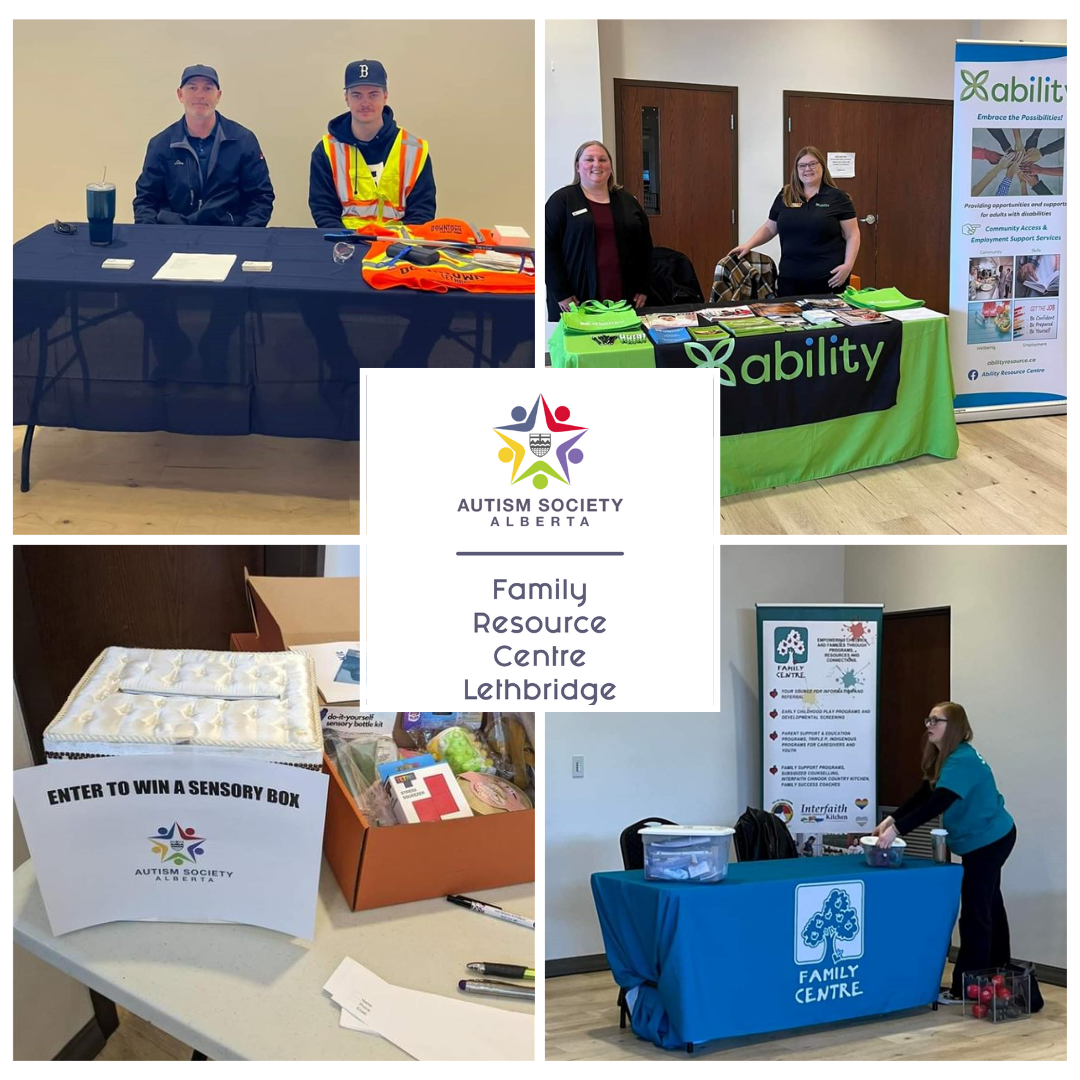
Our Lethbridge Family Support Coordinators Brandon and Chantal want to thank the community partners who joined in their first-ever resource fair, and the families who came by to check it out. They look forward to hosting more events like this. Also, thank you to the Lethbridge Herald, for dropping in and writing an article about the resource fair. The article can be found here.
Are you in the Lethbridge area and need support from our all-disabilities Family Resource Center?
For resources for children with disabilities,
call Brandon at 587-257-8845.
For resources for adults with disabilities,
call Chantal at 587-257-6320.
|
|
|
Medicine Hat Autism Society

On Sunday, April 23, the Medicine Hat Autism Society held it’s very first event – a walk in support of World Autism Acceptance Month. They were joined by local food trucks, vendors, families, and even Autism Society Alberta’s Family Resource Centre. The Medicine Hat News also included a write-up about both societies and the event here. The weather was perfect for all the families to be able to enjoy the walk, which was a huge success!
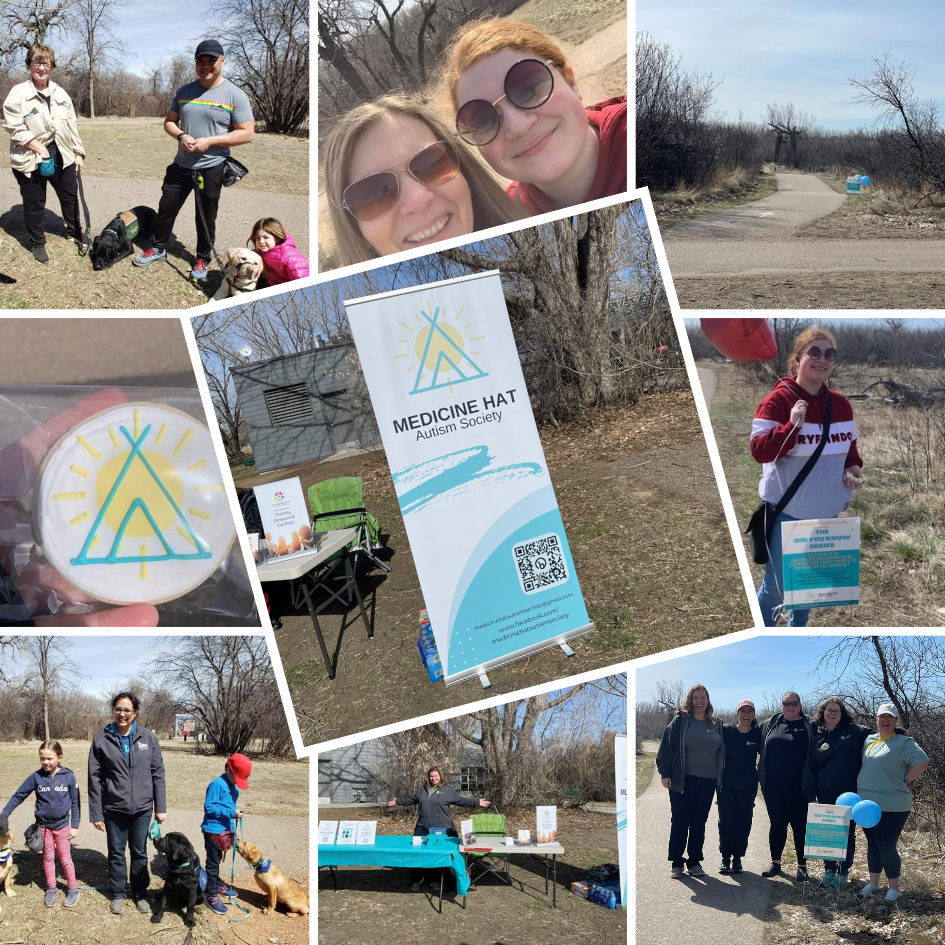
|
|
|
Re-Imagining Our Dreams
Karla Power
When you find out you are going to become parents, you start to dream about what your life will be like. You think about whom your kids will take after, what kind of parents you will be, and which family traditions will be their favourite to celebrate.
When they are born, you think about what kind of person they will 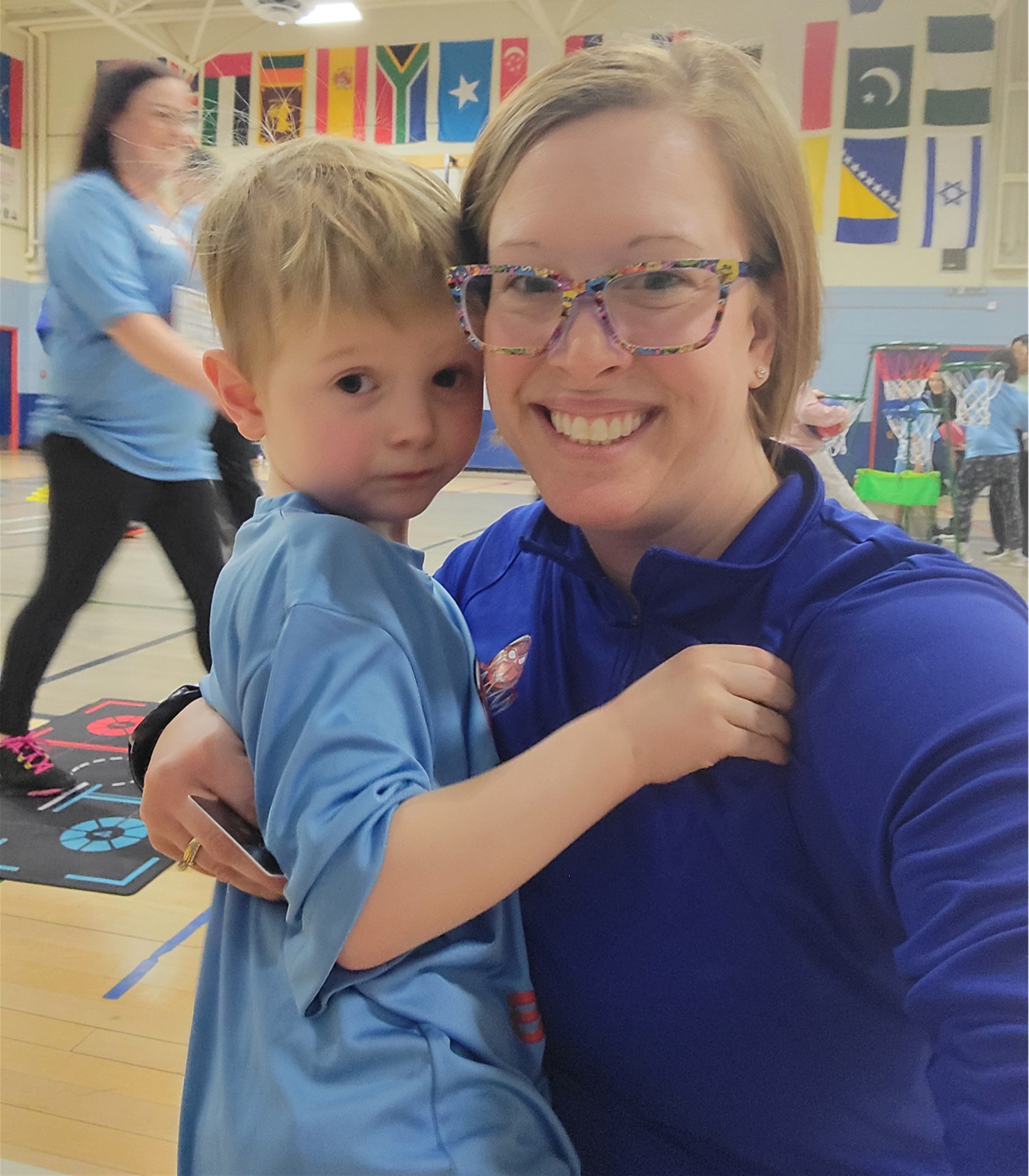 become, what their interests will be, and what career choice they might make. You may even have hopes and dreams about them finding love, and you and your husband becoming grandparents someday. become, what their interests will be, and what career choice they might make. You may even have hopes and dreams about them finding love, and you and your husband becoming grandparents someday.
When both of the boys were diagnosed with autism, it became difficult to predict their future, and it became too hard to think about those dreams. We are not even sure what junior high will look like for the boys, let alone once they age out of the school system. They may choose to go to post-secondary and follow a career path, or they may get a job using their skills. They may live independently or in a group home, or perhaps stay home with us.
It is very difficult to predict the future, so we choose to focus on the present. We will teach them skills, like any parent, and try new things. But our main focus continues to be their happiness. We have not abandoned our goals, but rather re-imagined them. Now, our goals are to make sure that their needs are being met. Of course, they are fed, clothed, and safe, but we also strive for them to be included and accepted.
One example of how we have re-imagined our goals is a recent endeavour that Frank and I took on together. Frank always had a dream that his boys would play sports, especially basketball, which he played while growing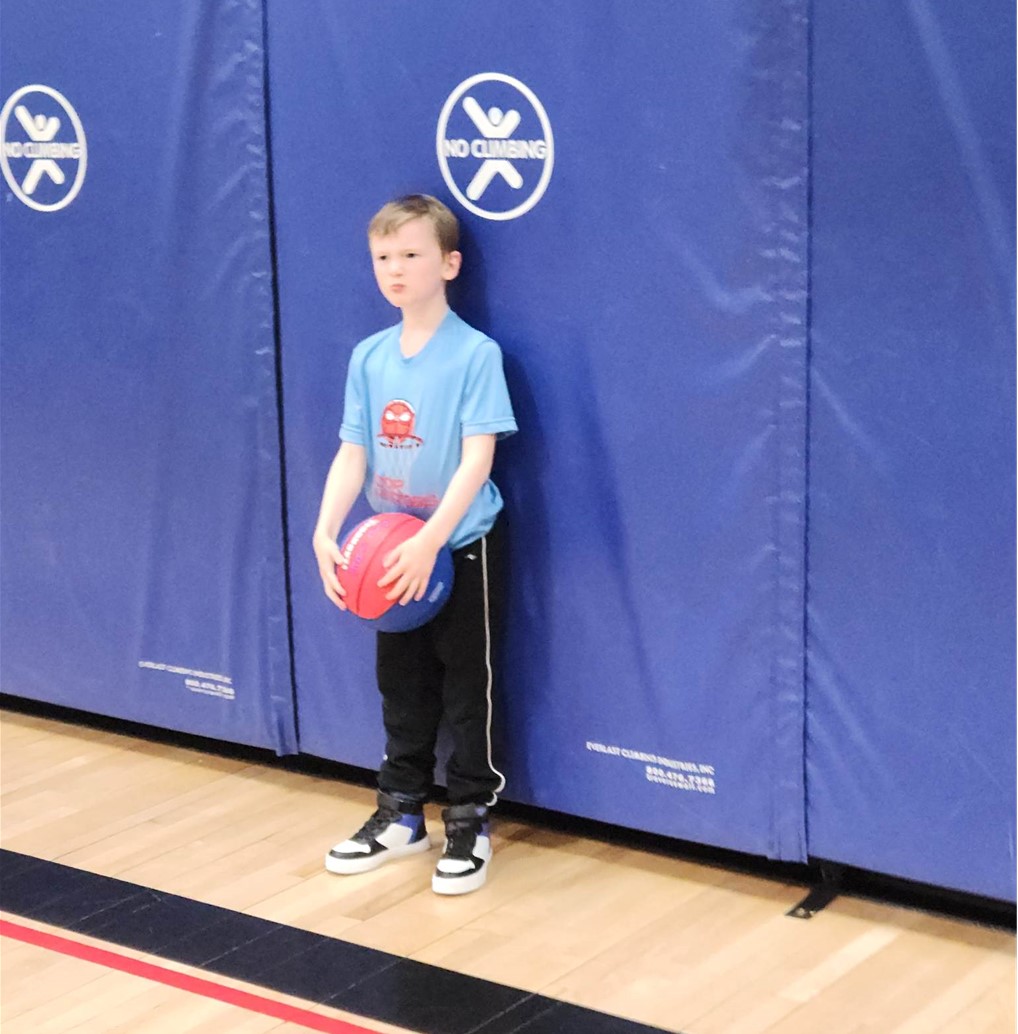 up. We both realized that the boys would need support to play this sport, so we created the Hoop Heroes Inclusive Basketball Program. We ran the program for five weeks and had almost 70 kids ages 5-17 signed up. up. We both realized that the boys would need support to play this sport, so we created the Hoop Heroes Inclusive Basketball Program. We ran the program for five weeks and had almost 70 kids ages 5-17 signed up.
We ordered adaptive equipment, and organized volunteers to work with our players, so that parents could sit back, relax, and watch their child play, which is not something we as special needs parents typically get to do. The program was very well received, and we plan to run it again in the fall.
Now, our dreams include pushing our schools, community, and province to do what is best for all children. We didn’t expect to become inclusion advocates when we became parents, but we really have no choice! We can’t stop advocating and fighting for our children, who will someday become adults and not have us around. They are both amazing boys, and have so much to teach us. So, the dream now is that the world will be ready for them and accept them for who they are now, and whoever they will become in the future.
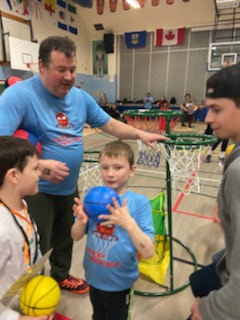
|
|
|
Autism Edmonton
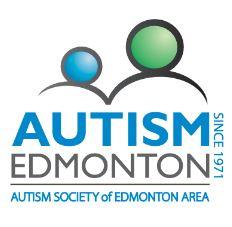
Cycle for Autism is back at Gold Bar Park on June 4th, 2023! Call your friends, start planning your team and register today: https://www.autismedmonton.org/host-a-fundraiser/

|
|
|
Teaching Flexibility – An Important Skill
Maureen Bennie

From the Autism Awareness Centre Inc. Blog:
Not everything in life goes according to plan – when change happens, we need to be able to adapt. While autistic people need predictable and consistent routines, it’s still important to be able to cope with changes, both planned and unplanned. Having flexibility will build resilience, problem-solving skills, and help a person overcome changes and challenges.
In order to comprehend why flexible thinking is challenging for autistic people, we have to first understand something about autistic neurology. Peter Vermeulen, my colleague in Belgium, is doing excellent work on the topic of autistic thinking. He says:
An autistic brain also develops models, but its models are a bit too precise and too absolute. And it tends to take little prediction errors a bit  too seriously. So, it could be that an autistic brain connects tears to sadness. And that brain would be confused if someone who is crying is also laughing and saying positive things. And an autistic brain also pays a lot of attention to little differences that other people ignore. Based on this description of the autistic brain, my definition of autism is: absolute thinking in a relative world. too seriously. So, it could be that an autistic brain connects tears to sadness. And that brain would be confused if someone who is crying is also laughing and saying positive things. And an autistic brain also pays a lot of attention to little differences that other people ignore. Based on this description of the autistic brain, my definition of autism is: absolute thinking in a relative world.
But autistic thinking is only a problem – or a disability – in an environment that demands flexible and contextually sensitive reactions. In other words, in conditions that demand a-contextual, straightforward, absolute and rule-based thinking, the autistic brain is an advantage. And there’s another thing as well: non-autistic brains with their contextual sensitivity and flexibility sometimes are a prisoner of context, while autistic brains, because of their ‘context blindness’, can create meanings and ideas that are ‘out of the box’.
You can see that there are advantages to absolute thinking; however, there are situations where being flexible can help a person, too. Rigidity can be a defence mechanism to prevent stress and anxiety. You may see rigid behaviour in play sequences, eating patterns, routines, and the insistence on sameness throughout the day. Our goal is never to force change, but rather to help a person learn flexible thinking strategies and healthy ways to manage anxiety.
What is cognitive flexibility?
Cognitive flexibility, also called flexible thinking, is an executive function. It is the ability to adapt behaviours in response to changes in the environment, switch tasks, and adapt when things are changing in the environment. Cognitive flexibility is crucial to our ability to shift to something else and to see things in another way, like when people say, “Look at this from another perspective”.

People who think rigidly or inflexibly have trouble seeing alternatives or doing things in a different order. They often get stuck on an activity or idea and may not know why or even be aware that this is happening. In Julie Rawe’s Understood.org post, she has compiled a list of what inflexible thinking looks like:
- Not accepting other people’s ideas
- Arguing the same point over and over
- Getting upset when others don’t follow rules
- Having trouble switching from one activity to another
- Getting anxious when plans change, or frustrated when small things go wrong
- Not following new schedules
- Struggling to take on new, more complicated tasks
- Repeating the same mistakes
- Having trouble getting jokes
How can we help build flexible thinking skills?
Learning to be flexible can be practiced in a number of ways. Start with small changes. Introduce enough of a change to give an achievable challenge, but not too much that it causes a person to feel overwhelmed and want to disengage.
- Change the routine order occasionally. Swap a visual around on the visual schedule. For example, change the day for a certain activity. Making these changes can also be used to make a choice. Being able to choose is another important life skill, and something we do daily.
- Make a physical change. This could be changing the location of a piece of furniture or where an object is in a room.
- Introduce a new activity into the routine. There may be a struggle when this is introduced initially, and engagement time is shorter. Consider putting this change into the visual schedule.
- Prepare for those unexpected moments. Things in life don’t always go to plan, but that doesn’t mean it has to be a disaster. Create intentional challenges for regular activities that can help teach the skills needed to respond to challenges, and become more
 flexible when things don’t go according to plan. For example, set the table but forget a utensil. Give the wrong item. This can also encourage the asking-for-help skill. flexible when things don’t go according to plan. For example, set the table but forget a utensil. Give the wrong item. This can also encourage the asking-for-help skill.
- Play games that have an element of chance. Card games or games with dice will have an element of unpredictability to them. Examples of games would be Kerplunk, Don’t Wake Daddy, or Pop-Up Pirate. Different outcomes of winning and losing will help prepare a person for unpredictable outcomes.
- Brainstorm together. Explore different options with a child, beginning with easy situations and moving on to more challenging ones. For example, you can decide together what to have for breakfast. A more challenging situation may be a real-life situation. My daughter and I do this all the time with WattPad, an online story-writing site that users also communicate on. We look at communication threads that are taking a wrong turn and figure out where things went wrong and what a better response would be.
- Frontloading. This is a way of preparing a child ahead of time for what to expect, possible scenarios, and what they can do.
- Explain what is happening. Sometimes, the reason for rigid behaviour is because a person doesn’t understand what is going on around them. Take the time to explain other people’s actions and the reasons for them.
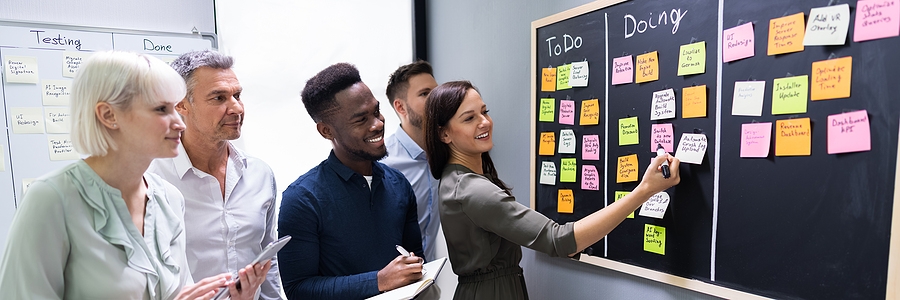
Building flexibility takes time. Many factors impact flexibility, ranging from anxiety, or stress to sensory challenges. The best way to increase flexibility is to build opportunities to practice in natural ways throughout the day. Be a good role model yourself and demonstrate how you deal with change and the unexpected.
|
|
|
Society for Autism Support and Services
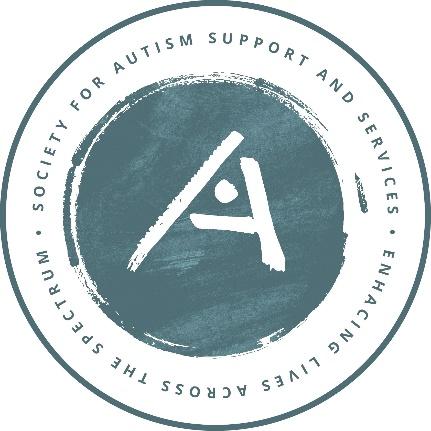
Society for Autism Support and Services (SASS) offers a range of skill-enhancing employment readiness and work-experience programs for autistic individuals ages 15 years and up. Employment supports are currently offered through Ready Willing and Able. For more information, please contact Joanne Greig, Program Coordinator at greigj@autism.ca
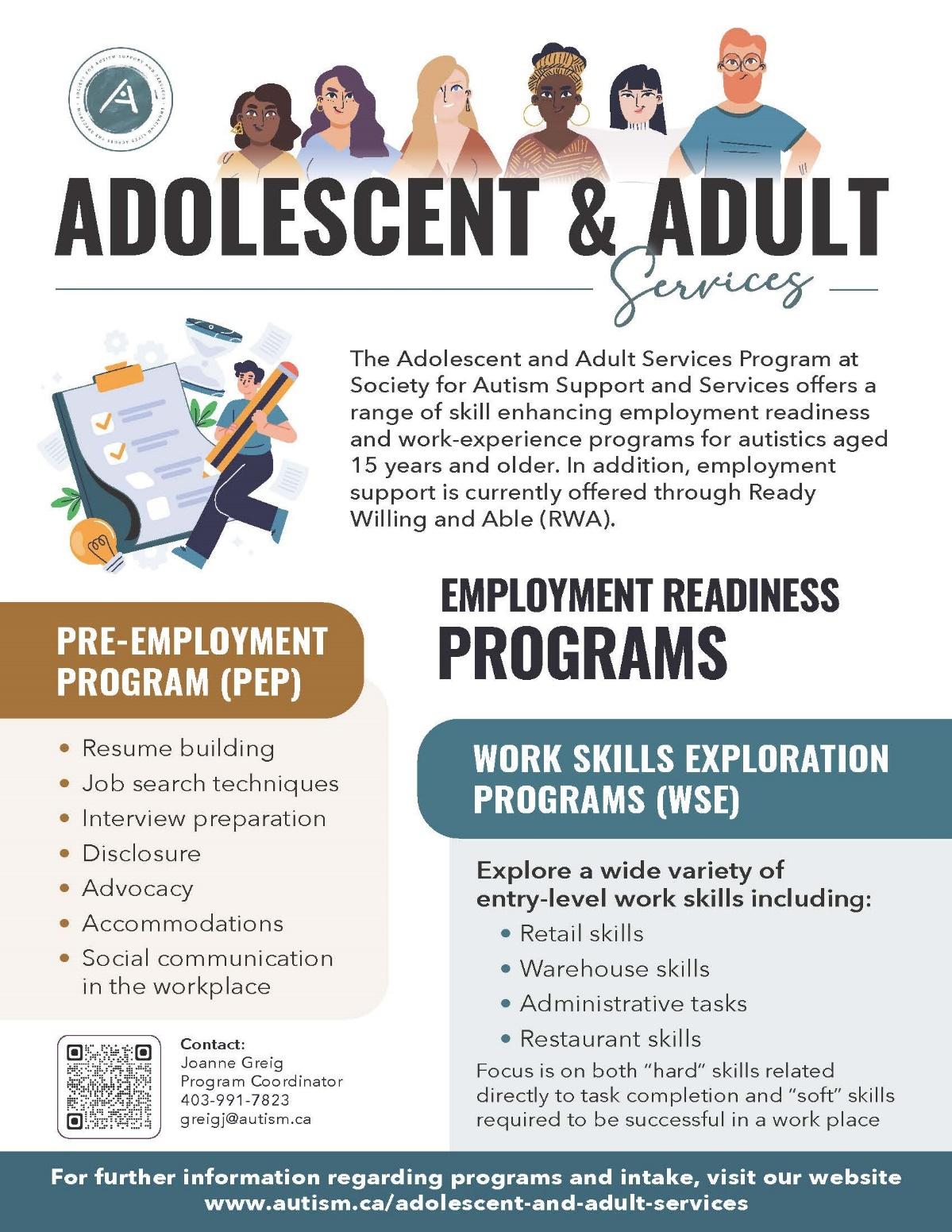
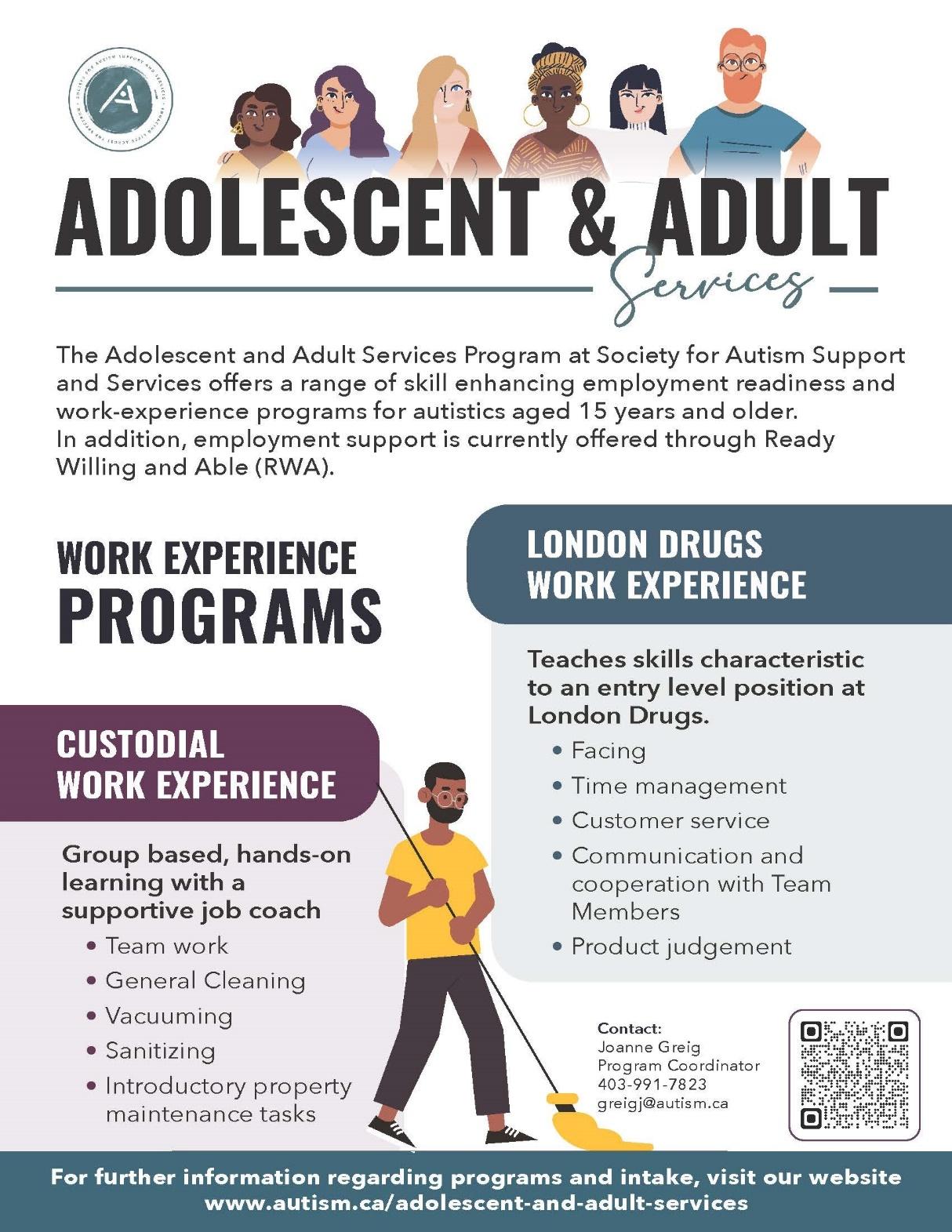
|
|
|
Children’s Autism Services of Edmonton
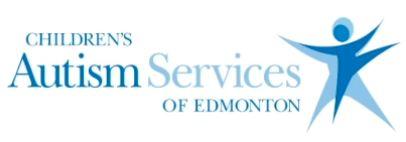
10th Annual Maier Centre for Autism Charity Golf Tournament
Attention golfers! Children’s Autism Services of Edmonton is excited to share that they are hosting the 10th Anniversary of the Maier Centre for Autism Charity Golf Tournament on Friday, June 9th at The Quarry Golf Club.
The event will be a Texas Scramble tournament, and golfers will enjoy breakfast on the go, a banquet lunch, a silent auction, and more! Funds raised will stay in the community and support summer camps and preschool & kindergarten programming.
Sponsorship opportunities are available at www.maiergolf.com. Register for your spot in the tournament here.

|
|
|
Upcoming Family Resource Centre Presentations
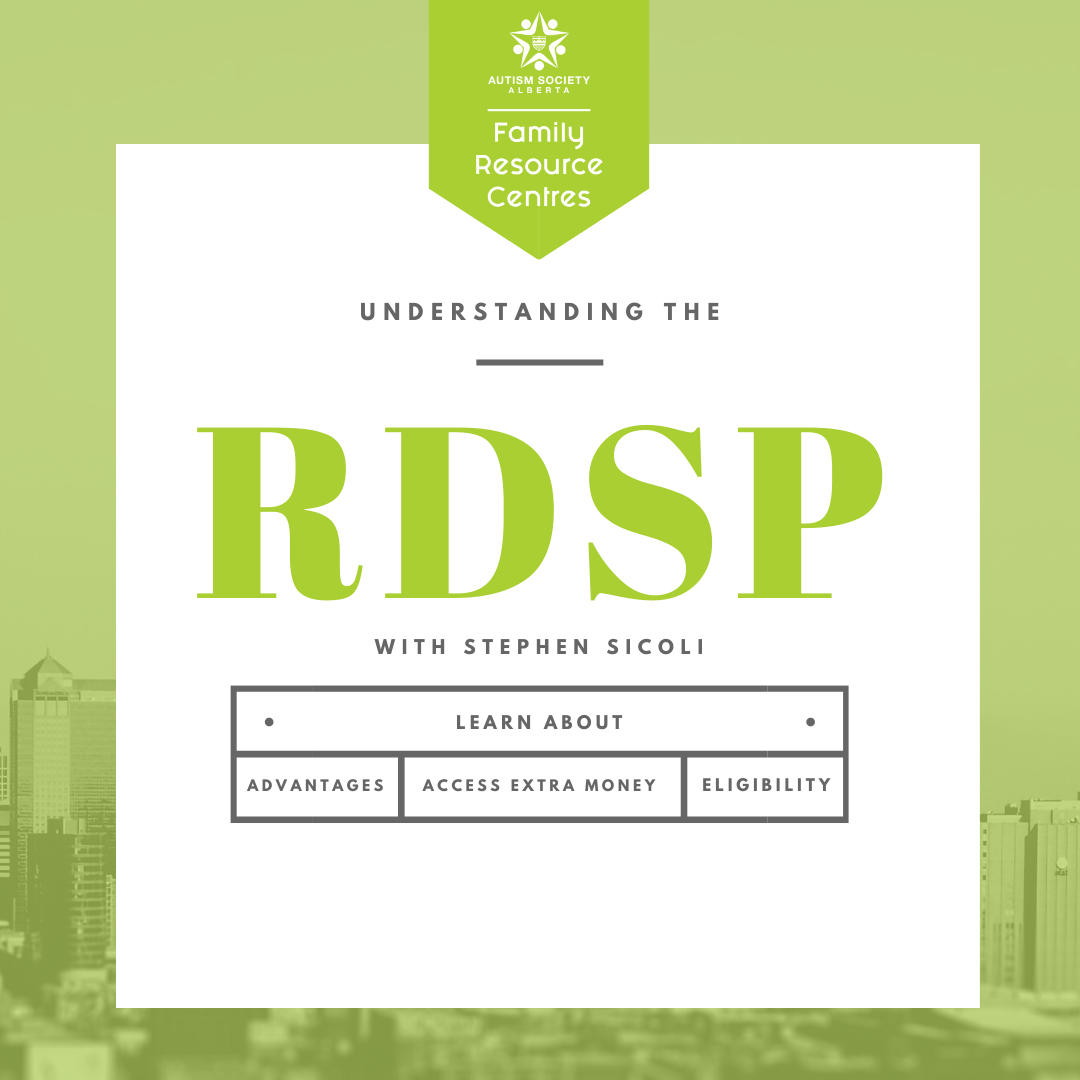
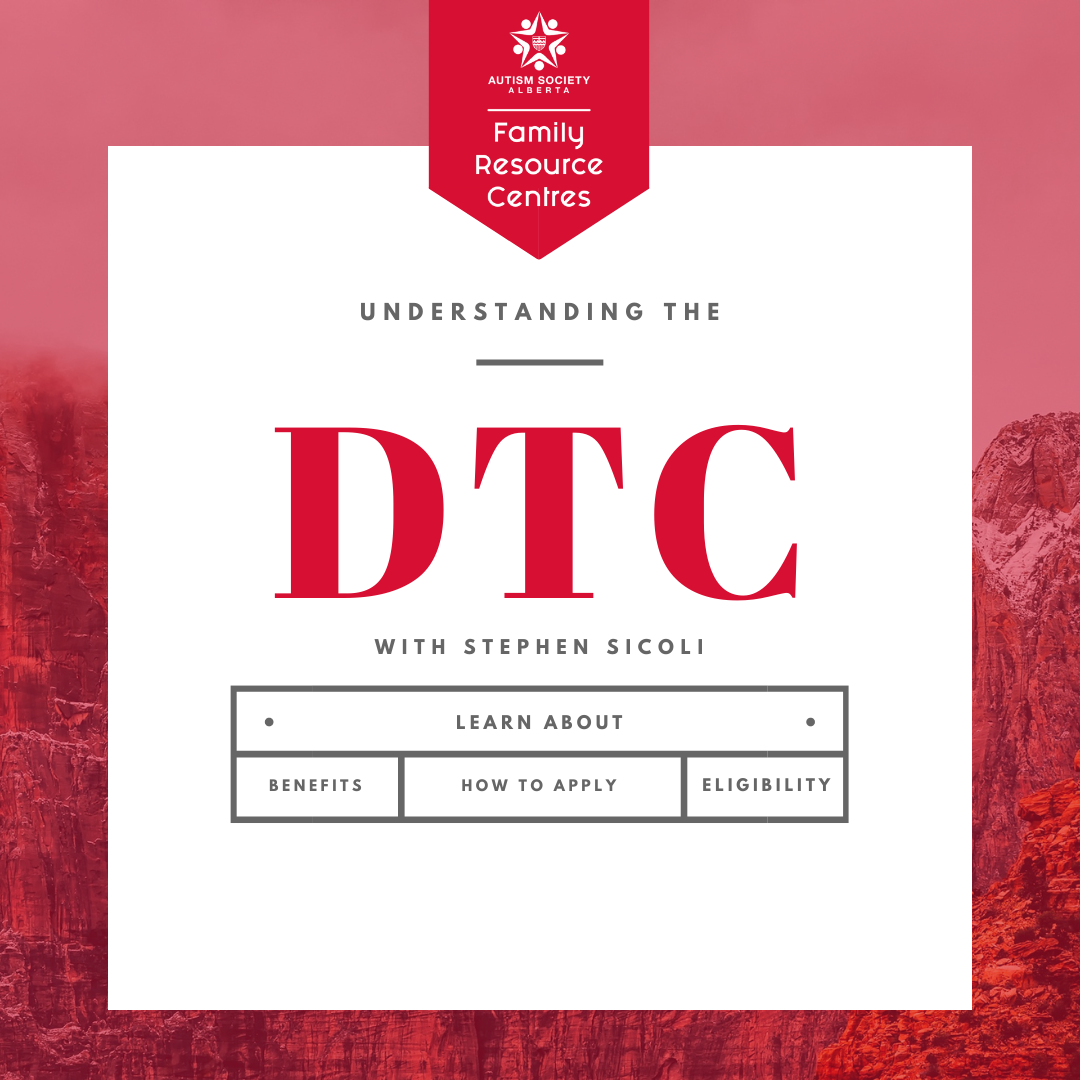
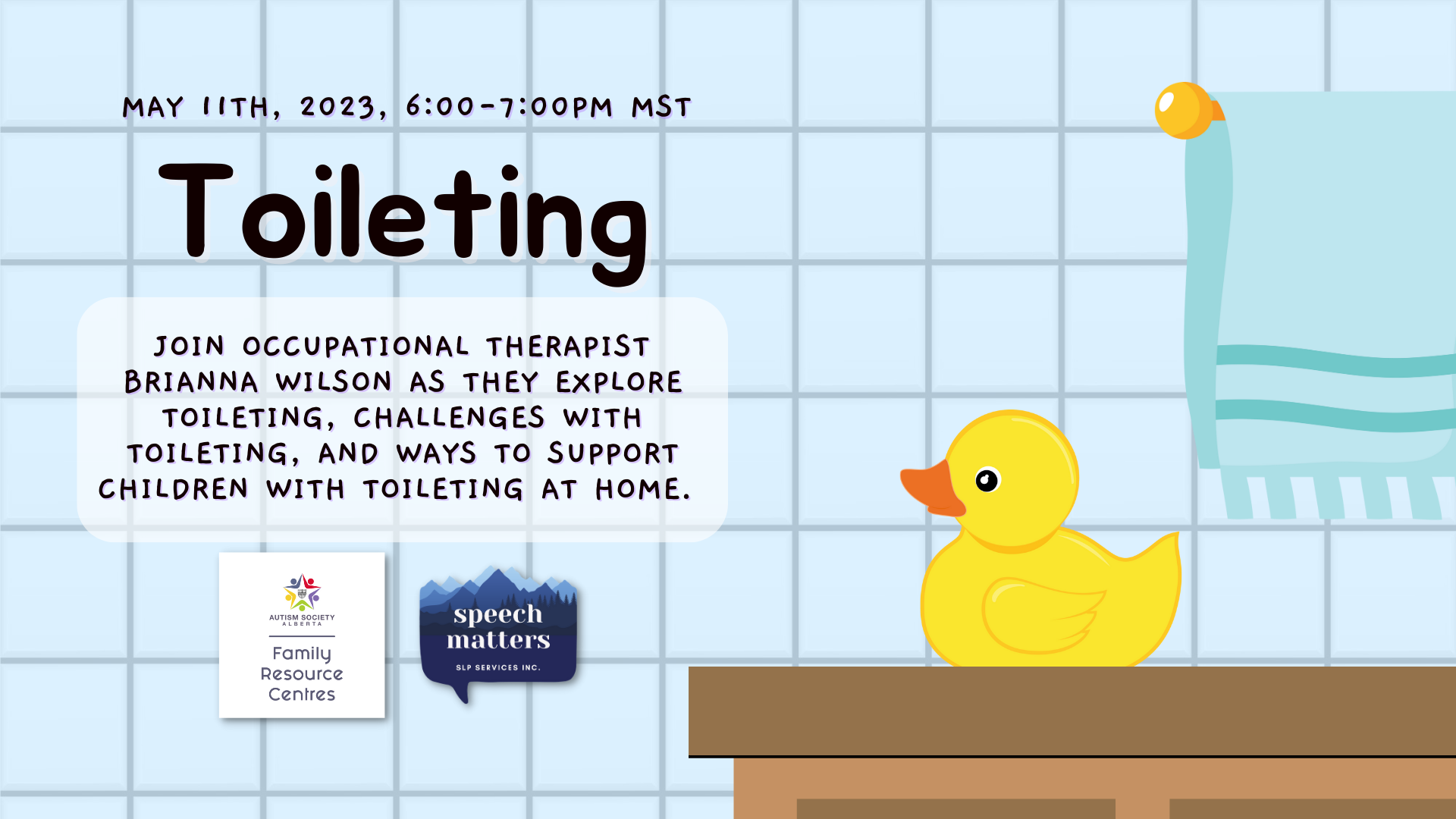
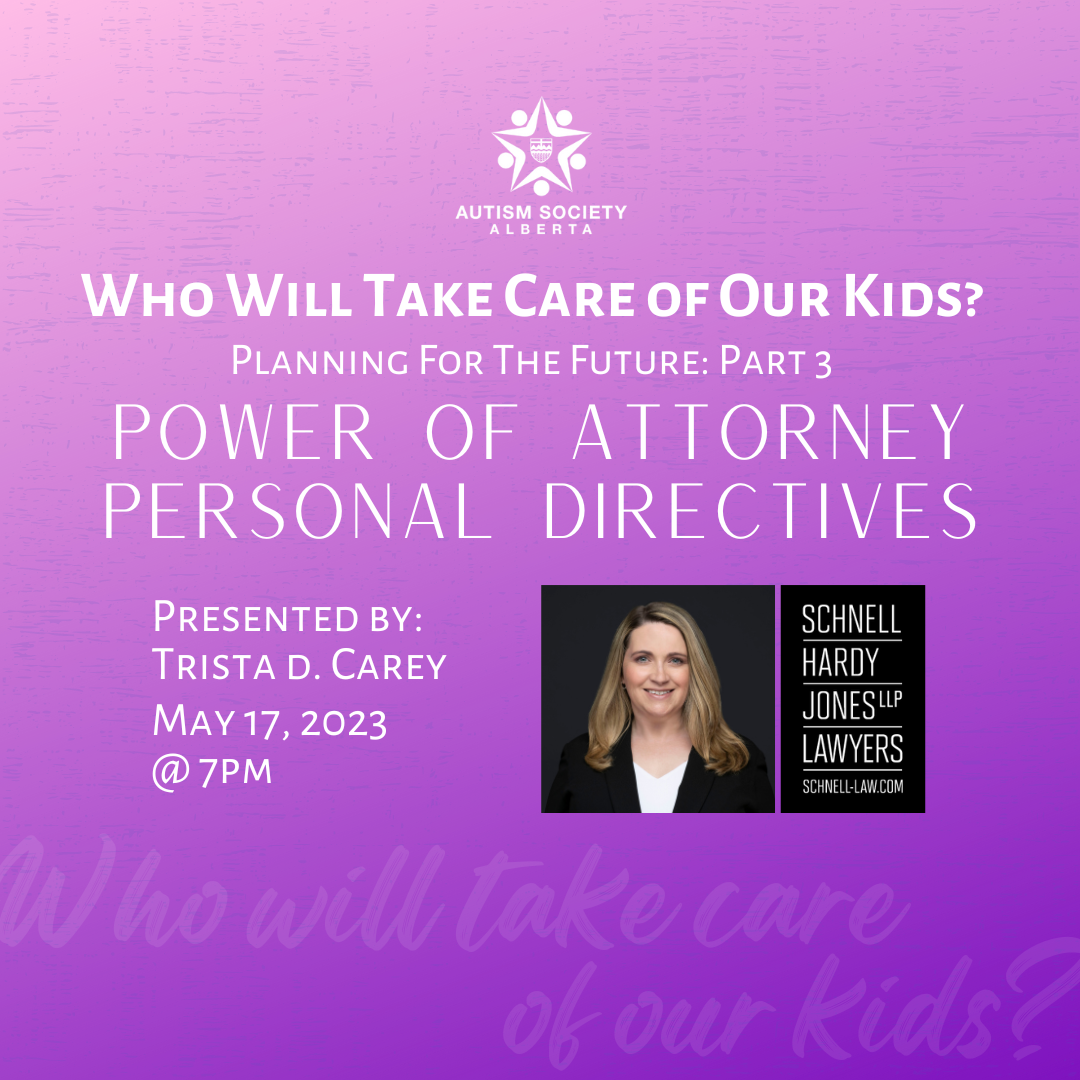
Planning for the Future –
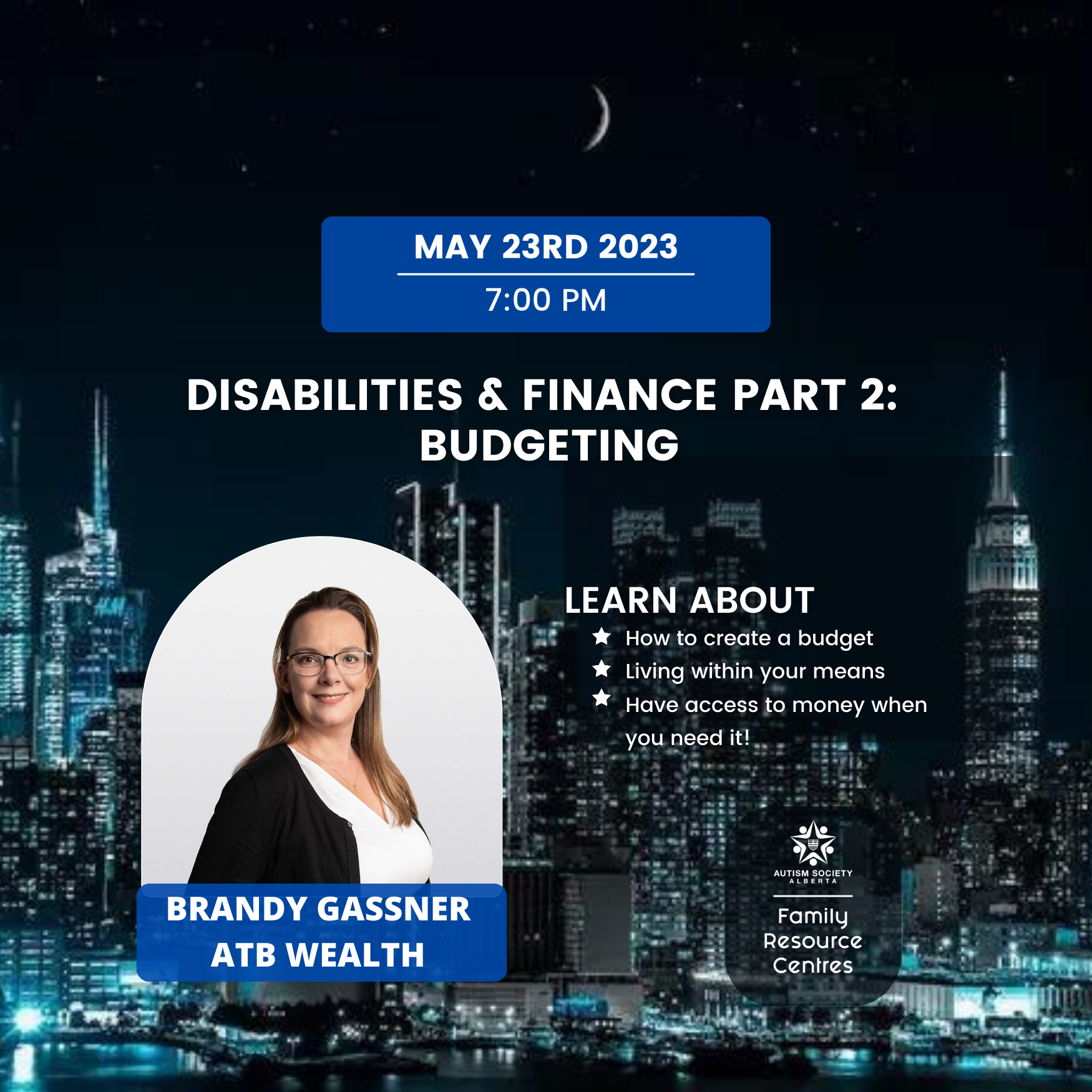
Disabilities & Finance –
|
|
|
|
|